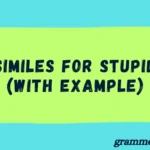Ever seen someone write “hayday” and wondered if that’s actually right? Or maybe you’ve used “heyday” in a sentence and paused, thinking, “Wait… is that even a word?” You’re not alone! English is full of words that sound the same but look different, and this is one of those tricky ones that can leave anyone second-guessing.
The good news? Only one of these is the correct spelling, and using the right one not only makes your writing look polished—it shows you know your stuff. So if you’ve ever been caught between heyday and hayday, let’s clear it up once and for all and make sure you’re using the right word with confidence.
The Quick Answer: It’s ‘Heyday’—Here’s Why
The correct spelling is “heyday”. It refers to a period of great success, popularity, or power. The word “hayday”? That’s a misspelling, although it appears often in casual writing due to how similar the two sound.
Why the Confusion?
- They sound identical (homophones).
- “Hay” is a real word, adding to the confusion.
- The mobile game “Hay Day” has popularized the incorrect spelling.
But when you’re talking about someone’s prime time or glory days? Always spell it heyday.
Breaking Down ‘Heyday’: What It Actually Means
Definition and Usage
According to Merriam-Webster, heyday is:
“The period of one’s greatest popularity, vigor, or prosperity.”
Grammatical Info:
- Part of Speech: Noun
- Pronunciation: /ˈheɪdeɪ/
- Plural Form: heydays
Example Sentences:
- “In her heyday, she could run a mile in under five minutes.”
- “The heyday of disco music was in the late 1970s.”
- “This town had its heyday during the gold rush.”
In all examples, “heyday” signifies peak performance or popularity.
Origin and Etymology: Where Did ‘Heyday’ Come From?
Understanding a word’s roots can help us use it with more confidence.
Historical Background
- Originates from the 16th century.
- Derived from the Middle English exclamation “heyda!”, meaning an expression of joy or surprise.
- Over time, the meaning evolved to represent a time of excitement and high energy.
Famous Usage in Literature
“You have lived in your heyday of prosperity.” — William Shakespeare
Even Shakespeare used “heyday” to describe a prime period in life. That historical pedigree adds weight to the spelling.
What About ‘Hayday’? Is That Even a Word?
Is ‘Hayday’ Ever Correct?
Nope—not in standard English.
“Hayday” is not listed in any major dictionary as a recognized word. It shows up online primarily due to:
- Typos and autocorrect errors
- The mobile game Hay Day
- Misunderstanding of the word’s origin
A Note on Supercell’s Game: ‘Hay Day’
- Launched in 2012
- Farming-themed mobile game
- The name is a pun on “hay” (as in farm produce) and “day”
This clever branding contributes to the confusion. However, in formal writing, using “hayday” in place of “heyday” is incorrect.
Spelling Matters: Why Getting It Right is Important
You might wonder: “Does it really matter which version I use?” Yes—and here’s why.
Mistakes Erode Credibility
- In business or academic writing, accuracy counts.
- Misspelling common words can undermine your authority.
- Grammar tools may not always catch homophones.
Real-World Consequences
- A wrong word can change your message.
- Poor spelling may result in lost job opportunities, especially in resumes or formal communications.
Fact: According to Grammarly, misspellings are among the top 3 writing issues flagged in professional documents.
‘Heyday’ vs ‘Hayday’ in Online Search Trends
Search engines don’t lie. Let’s look at what people are typing.
Key Insights:
- “Hayday” has higher search volume during seasonal farming events or game promotions.
- “Heyday” sees spikes during nostalgia-driven topics or political commentary.
- The game “Hay Day” influences the spike of misspellings.
These trends show how cultural influences shape search behavior—but that doesn’t make “hayday” grammatically correct.
Common Synonyms for ‘Heyday’ (And How to Use Them)
Sometimes you want to avoid repetition. Here are strong alternatives:
| Synonym | Meaning | Example |
| Prime | Best period in time | “He was in his prime at age 30.” |
| Zenith | Highest point or climax | “The business reached its zenith in 2018.” |
| Pinnacle | Peak of success | “That award marked the pinnacle of her career.” |
| Golden age | Ideal or prosperous era | “The 1960s were the golden age of cinema.” |
| Glory days | Time of past triumph | “Those were our glory days.” |
These synonyms can be useful depending on the tone and context of your writing.
How to Remember the Correct Spelling: ‘Heyday’
You don’t need to rely on memory alone. Use these tricks to remember:
Mnemonic Tip:
“Say ‘Hey!’ It’s the best day ever!” → Heyday
Breakdown Visualization:
- Hey (excitement)
- Day (time)
Together: Time of excitement = heyday.
Avoid the Trap:
There’s no hay in heyday.
Usage Tips: Where and How to Use ‘Heyday’ Effectively
Whether you’re writing for fun or business, here’s how to use “heyday” like a pro.
In Professional Writing:
- “During its heyday, the startup raised $10 million in funding.”
In Creative Writing:
- “The protagonist reminisced about his heyday as a rockstar.”
In Social Media Captions:
- *”Throwback to the heyday of Myspace!”
Tone Reminder:
- Use “heyday” to evoke nostalgia, peak performance, or historic prominence.
Final Verdict: Say Goodbye to ‘Hayday’ for Good
Let’s set the record straight:
- “Heyday” is the correct word for one’s prime time.
- “Hayday” is a mistake unless referring to the game or used creatively.
- Double-checking spelling shows professionalism.
So next time you write, make sure you’re celebrating someone’s heyday, not planning a farm.
FAQs About ‘Heyday’ vs ‘Hayday’
Is hayday ever acceptable in formal writing?
No. It’s not a recognized word in dictionaries and shouldn’t be used in professional settings.
What does heyday actually refer to?
It means the period of greatest success, popularity, or influence.
Why is ‘hayday’ still used by people?
Because it’s a homophone and visually similar to “hay” (a common noun), plus the game “Hay Day” adds to the confusion.
Is ‘hay day’ the same as ‘hayday’?
No. “Hay Day” is a brand name, while “hayday” is a spelling error.
What’s a quick way to remember ‘heyday’?
Think: “Hey! What a day!” → Heyday.
Bonus: Heyday in Pop Culture and Branding
Examples in Media & Pop Culture:
- “The heyday of 90s sitcoms brought us endless laughter.”
- The term often appears in nostalgia-driven headlines.
Brands Using ‘Heyday’:
- Heyday Skincare: A facial spa brand
- Heyday by Target: Electronics & accessories line
These brands leverage the word’s meaning to communicate peak quality or experience.
Summary Table: Heyday vs Hayday
| Aspect | Heyday | Hayday |
| Correct Spelling | ✅ Yes | ❌ No |
| Dictionary Word | ✅ Yes | ❌ No |
| Definition | Prime time or peak | Not defined |
| Formal Usage | ✅ Accepted in all formats | ❌ Not acceptable |
| Cultural Influence | Literature, branding, journalism | Game title (Hay Day) |
| Common Error Type | None | Misspelling |
Final Thoughts: Say It Right, Write It Right
At the end of the day, “heyday” is the only correct spelling when you’re talking about someone’s peak, prime, or most successful time. The spelling “hayday” might look right at first glance, but it’s actually a common misspelling.
Now that you know the difference, you can use “heyday” with confidence in your writing—whether you’re talking about a celebrity’s glory days or reminiscing about your own. Language is all about getting it right and expressing yourself clearly, and knowing small distinctions like this helps you do just that.

Mariah Cannon is the dedicated educator behind GrammerHome.com, committed to making English grammar clear, engaging, and confidence-boosting. With years of teaching experience and a passion for effective communication, Mariah specializes in breaking down complex grammar rules into bite-sized, easy-to-apply lessons.




